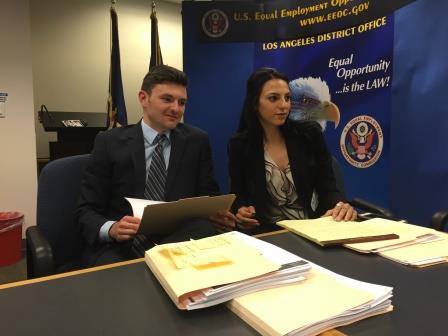Stanford Clinic Vindicates Religious Freedom for Sikh Clients
Stanford Law School’s Religious Liberty Clinic has helped secure a landmark settlement with national trucking giant J.B. Hunt that will allow its Sikh truck drivers to maintain unshorn hair in accordance with their deeply held religious beliefs. The deal also includes a six-figure payment to the Clinic’s clients, four Sikh employees and applicants of J.B. Hunt who had challenged as a violation of federal civil rights law the company’s hair-cutting requirement for driver drug testing.
The Sikh religion traditionally forbids the cutting of hair and beards; historically Sikhs have died rather than abandon the practice. But J.B. Hunt had refused to exempt Sikhs when insisting that its drivers provide fresh hair samples for drug testing. The company did so despite the option of using fingernail clippings or other effective drug-detection alternatives to ensure roadway safety.
The settlement follows years of work by teams of Clinic students and the Sikh Coalition, as well an investigation and findings by the U.S. Equal Employment Opportunity Commission that sided with the Sikh truck drivers. The case was finally resolved through a multilateral negotiation led by former Clinic students Nicole Cambeiro, JD ’16, and Daniel Renz, JD ’16, with the Sikh Coalition’s Harsimran Kaur.
The students who handled the case not only honored the Religious Liberty Clinic’s commitment to advocacy for religious minorities facing obstacles in the practice of their faith, they also gained real-world insights into what it means to be a lawyer seeking justice. “The process showed me how foreign the legal system is to basically everyone outside of it, and, because of that, how important it is to be more than the lawyer who just thinks critically and writes well,” said Renz.

The students also learned about the challenge and opportunity of client-centered advocacy in the context of wider community concern, as they negotiated both broad policy changes and monetary compensation for their clients. “Working with all four clients taught me that as lawyers, we really are our clients’ greatest allies,” said Cambeiro. “It’s an enormous and powerful responsibility.”
Clinic Director James Sonne emphasized that the J.B. Hunt settlement “reinforces the principle that employers have a legal and moral duty to honor the religious identity and expression of their workers.” Sonne added that the deal also “encourages Sikh Americans everywhere that they can maintain their articles of faith without sacrificing their livelihood—as is their right.”
About the Religious Liberty Clinic at Stanford Law School
The Religious Liberty Clinic is the only clinic of its kind in the country. The program offers its students a full-time, first-chair experience representing a diverse group of clients in legal disputes arising from a wide range of beliefs, practices, and circumstances. Students learn in class and engage through reflective and supervised practice the laws, norms, and limits affecting the exercise of religious freedom in a pluralistic society. Students counsel individual or institutional clients and litigate on their behalf with excellence, professionalism, and maturity. Although religious-liberty disputes cut across economic lines, the clinic strives to serve those in need.
About Stanford Law School
Stanford Law School is one of the nation’s leading institutions for legal scholarship and education. Its alumni are among the most influential decision makers in law, politics, business and high technology. Faculty members argue before the Supreme Court, testify before Congress, produce outstanding legal scholarship and empirical analysis, and contribute regularly to the nation’s press as legal and policy experts. Stanford Law School has established a new model for legal education that provides rigorous interdisciplinary training, hands-on experience, global perspective and focus on public service, spearheading a movement for change.
